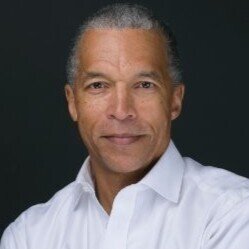Intuition is a powerful tool. An accumulation of all our experiences, emotions, past and present, what we’ve heard, and what we fear…all settled down into the bottom of our self-consciousness Intuition is what gives us direction.
We recently held a roundtable on trusting your intuition where Tony Wilkins, a CEO coach and startup investor, shared his experiences identifying situations in which instinct is useful and necessary, and how to effectively apply and trust our intuition.
“Intuition is a tool: use it,” declared Tony. Intuition is really like the chairman of the board or CEO of an organization. In a well-functioning operation, a CEO allows decisions that can be made at a lower level to be made by those people at that level. The CEO does the jobs that can’t be done by others. In a similar way, intuition is our last line of defense. In many instances there are decisions we can make before we have to call on our intuition.
Tony went on to discuss the four levels of competence that are related to intuition: unconscious incompetence, conscious incompetence, conscious competence, and unconscious competence. The latter, unconscious competence, is the level when our intuition has enough fuel or substance where we can make a decision unconsciously and almost not know why. It’s at this level where we can effectively apply our intuition.
While intuition manifests itself in several ways, the first way we notice is physically. If we are facing an uncertain issue or needing to make a decision, we can feel which way we want to go almost unconsciously. Our bodies, through facial expressions, tense muscles, heart rate, etc. tell us what decision we need to make. If we can train ourselves to take the time to understand what type of situation we are in, what kind of benefits can occur, and how we can spread knowledge across our organizations, Tony explained, “then we can delegate less and less to our intuition and more and more to factual dispassionate assessments of situations.”
In situations when there isn’t a lot of data, Tony advised to first get as much as possible, and then apply intuition. As we gain more information and become more confident, we can build a playbook and begin to delegate, and use intuition only when necessary. In other words, the amount of data and the need to rely on intuition are inversely proportional.
Tony circled back to repeat his earlier declaration: “Intuition is a tool: use it.” Intuition is a powerful accumulation of experiences, emotions, fears and what we know, but it is only useful when used appropriately. Rely first on statistically sound data to build a playbook, then we can fall back on intuition for those gut decisions.


